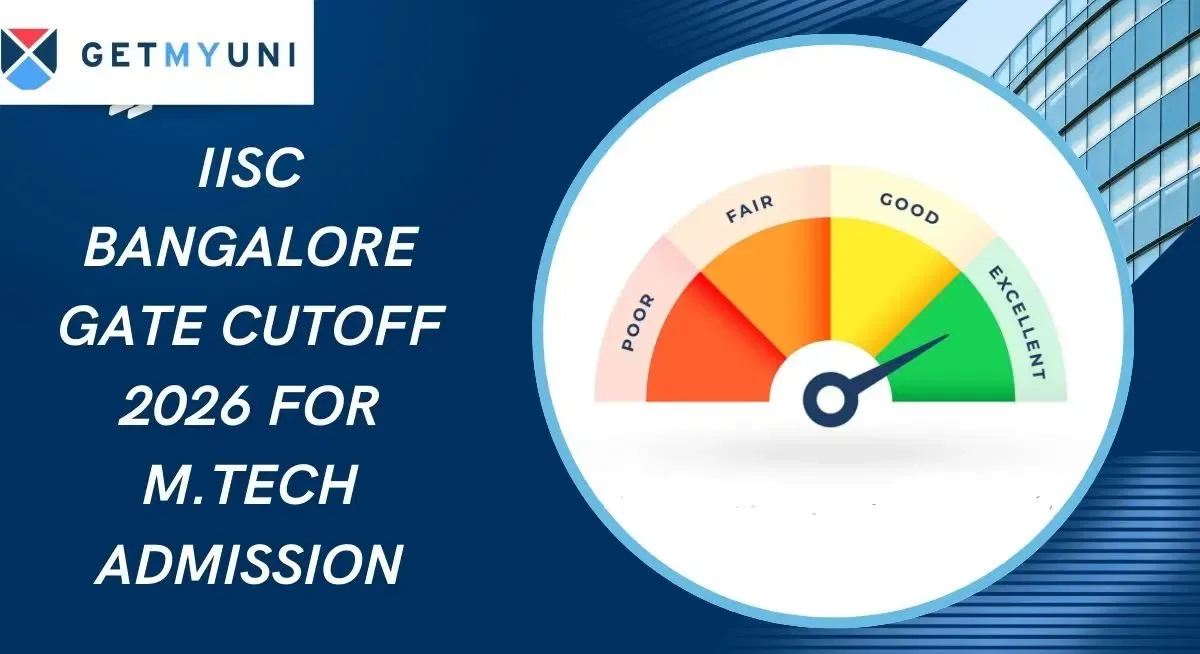The top toughest engineering branches in India include Electrical Engineering, Civil EngineeringMechanical Engineering, Chemical Engineering and Aerospace Engineering. You must score 75% or above in class 12th in the PCM stream for admission to these branches.
Some of the toughest engineering branches in India are Electrical Engineering, Civil Engineering, Mechanical Engineering, Chemical Engineering and Aerospace Engineering. If you wish to gain admission to any of these branches, you should achieve more than 75% in 10+2 and a high percentile in entrance examinations like JEE Main, BITSAT, IES and more.
Admission to the toughest engineering branches in India may seem difficult, but they offer dynamic and promising career opportunities. You can expect lucrative salaries ranging from INR 8 Lakh to INR 65 Lakh after completing B.Tech or B.E.
Thus, if you must learn about these engineering programmes. This article will provide all the information on the toughest branches of engineering in India.
Exploring the Toughest Engineering Branches in India 2025
Engineering is one of the most popular career choices for students in India. Hiring managers from across industries seek skilled and professional engineers with a knack for learning.
However, engineers from certain in-demand and tough engineering branches are preferred over others. Here's everything you need to know about the toughest engineering branches in India 2025:
- Electrical Engineering
- Civil Engineering
- Mechanical Engineering
- Chemical Engineering
- Aerospace Engineering
1. Electrical Engineering
Electrical engineering is the field of education that studies, designs, and develops electrical systems. The theoretical knowledge is applied to create electrical systems, devices, and equipment.
Electrical engineers work on various projects, from power generation and distribution to telecommunications and electronics.
|
Particulars |
Details |
|
Best Universities for Electrical Engineering in India |
IIT Bombay IIT Guwahati NIT Trichy |
|
Average Starting Salary for Electrical Engineers in India |
INR 3 LPA to INR 6 LPA |
|
Job Prospects After Electrical Engineering |
Electrical Engineer/ Electronic Engineer Power Engineer Control Systems Engineer Telecommunications Engineer Consulting Engineer |
Also Read: Career Scope of Electrical Engineering in Future
2. Civil Engineering
Civil engineering is one of the toughest branches of Engineering in India. It deals with the planning, design, construction, and maintenance of infrastructure such as buildings, roads, bridges, dams, and water supply systems. Theoretical principles of structural mechanics, geotechnics, and environmental science are applied to build sustainable and functional infrastructure.
Civil engineers contribute to public safety, environmental sustainability, and urban development by creating essential structures and systems.
|
Particulars |
Details |
|
Best Universities for Civil Engineering in India |
IIT Bombay |
|
Average Starting Salary for Civil Engineers in India |
INR 3 LPA to INR 5 LPA |
|
Job Prospects After Civil Engineering |
Site Engineer |
3. Mechanical Engineering
Mechanical Engineering is also one of the toughest branches of engineering that combines the study of physics, mathematics and material science to design, manufacture and maintain mechanical systems. Mechanical engineers build complex machinery and equipment and collaborate with architects and computer scientists to work on projects.
|
Particulars |
Details |
|
Best Universities for Mechanical Engineering in India |
IIT Bombay VIT Vellore IIT Kharagpur |
|
Average Starting Salary for Mechanical Engineers in India |
INR 2.4 LPA to INR 4 LPA |
|
Job Prospects After Mechanical Engineering |
Aerospace Engineer Automotive Engineer CAD Technician Control and Instrumentation Engineer Maintenance Engineer Mechanical Engineer |
Also Read: Tier 1 Engineering Colleges in India 2025
4. Chemical Engineering
Chemical engineering is also one of the most difficult branches of engineering, requiring a thorough knowledge of chemistry and physics. Students learn about chemical properties, bonds, atomic properties, thermodynamics, chemical reactions, etc, which form the core of chemical engineering.
The engineers are involved in the invention and production of various chemical products. They also design, develop, and operate chemical plants and processes. Chemical engineers plan and work in chemical plants and chemical processes.
|
Particulars |
Details |
|
Best Universities for Chemical Engineering in India |
Delhi Technological University IIT BHU |
|
Average Starting Salary for Chemical Engineers in India |
INR 3 LPA to INR 6 LPA |
|
Job Prospects After Chemical Engineering |
Chemical Plant and System Operator Analytical Chemist Chemical Process Engineer Manufacturing Production Engineer Petrochemical Engineer Food Chemists Nuclear Engineer |
5. Aerospace Engineering
Aerospace engineering mainly deals with the designing, development and maintenance of satellites, aircraft and spacecraft. Aeronautical engineering and astronautical engineering are two important branches of aerospace engineering.
Aerospace engineers work in various industries, like aerospace manufacturing, defence, government research and development, commercial aviation, space exploration, etc.
|
Particulars |
Details |
|
Best Universities for Aerospace Engineering in India |
IIT Delhi IIT Bombay IIT Kanpur |
|
Average Starting Salary for Aerospace Engineers in India |
INR 4 LPA to INR 6 LPA |
|
Job Prospects After Aerospace Engineering |
Aerospace Technician Pilots Aircraft/Spacecraft Designer Aviation Managers Researchers Aerospace Design Engineers Aerodynamics Engineer |
Also Read: Aeronautical Engineering vs Aerospace Engineering
Entrance Exams in India for Top Branches in Engineering
To gain admission to the toughest branch in engineering in India, aspirants must appear for several national, state and university-level entrance tests. Engineering entrance exams are considered tough, and the cutoffs are high.
Here are 5 top engineering entrance exams in India that offer admission to the toughest engineering branches:
1. JEE Main
JEE Main stands for Joint Entrance Examination, which is held by the NTA (National Testing Agency) to admit students to B.Tech, B.Plan, and B.Arch programs. If you have secured a good percentile in JEE Mains can expect admission to IITs, top NITs, IIITs, GFTIs, and other top engineering colleges in the country.
2. JEE Advanced
JEE Advanced is the next step after JEE Main for admission to the toughest engineering branches in India. Students with 90 per cent and above in JEE Main can only apply for JEE Advanced. Top-tier colleges, including IITs, participate in the admission process.
The cutoffs are generally high, and seats are limited for admissions.
3. GATE
Graduate Aptitude Test for Engineering is the abbreviation for GATE. As the name suggests, this exam is conducted for admission into M. Tech and PhD courses.
The GATE examination is difficult to pass, as the competition is fierce. However, students with excellent knowledge of their respective subjects can pass it.
4. IES
IES is the short form of Indian Engineering Services. The exam is conducted by the UPSC (Union Public Service Commission) to recruit you for various engineering positions in the Indian Government.
Students applying for this examination are high, and only a few students can serve the government.
5. BITSAT
Birla Institute of Technology and Science Admission Test, popularly known as BITSAT. It is a university-level examination.
The questions for the entrance examination are almost parallel to JEE Mains. Hence, making it hard to crack.
Scope of Engineering in India 2025
Students are often confused about whether admission to the toughest engineering branches is worth the cost. A career as an engineer is promising.
Let's have a look at the bright side of being an engineer:
- Engineers can apply in various fields of employment based on their area of interest.
- They usually research, develop, and launch new products and services.
- Further, all new inventions in the field of science and technology are promoted by engineers.
- Engineers can also work as researchers to contribute more to society.
- Lastly, engineers can also become scientists by researching their field of interest more.
Also Read: Engineering Courses After 12th










